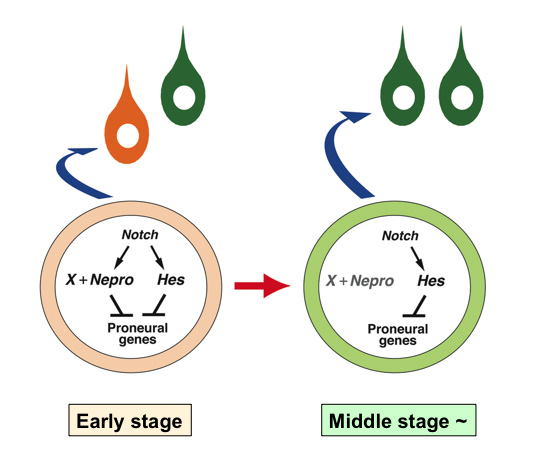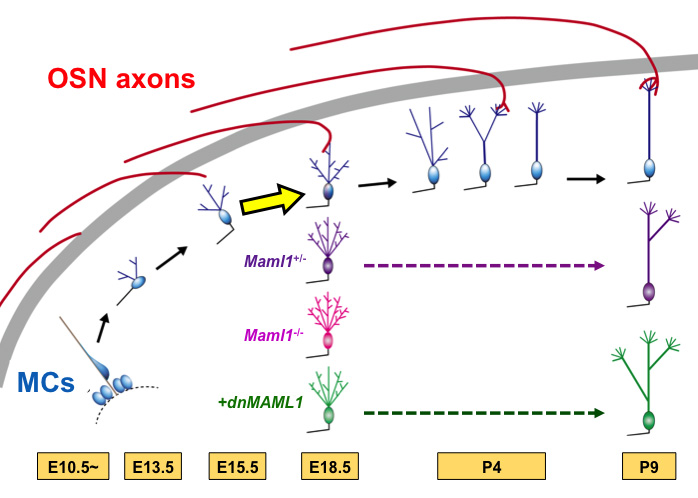|
千葉大学大学院医学研究院 |
Graduate School of Medicine |
| Top | Research | Members | Publications | Methods | Recruitment |
Research
|
千葉大学大学院医学研究院 |
Graduate School of Medicine |
| Top | Research | Members | Publications | Methods | Recruitment |
The nervous system is essential to make human beings what they are. There are, however, still many mysteries concerning how it is build. We are focused on developmental mechanisms of the nervous system, which will provide insights into regenerative medicine to rebuild it after its damage. We are constantly working on new research projects using the latest techniques in molecular and developmental biology. We have developed the in vivo electroporation method in mouse embryos and identified a unique gene, Nepro, which is necessary for the maintenance of early neural stem cells. We have recently found a novel mechanism for controlling dendrites of mitral cells in the olfactory bulb.
1. Molecular mechanisms for the maintenance of early neural stem cells in the neocortex
Mammalian early neural stem cells have the potential to give rise to many types of neurons and glia. We have been studying the molecular mechanisms, which are key to utilizing multipotent neural stem cells for application, by characterizing functions of early neural stem cell-specific genes that we have found.

